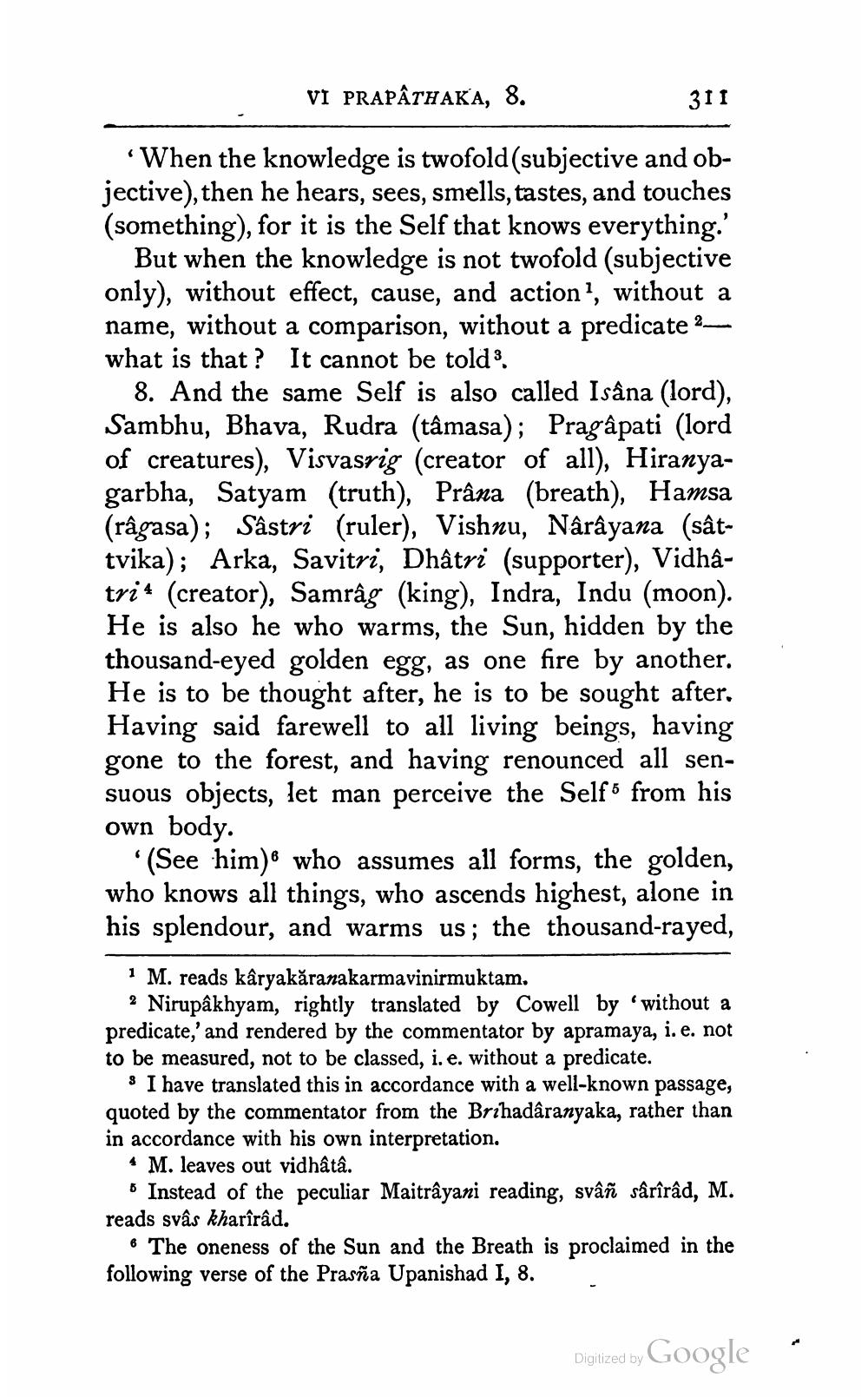________________
VI PRAPATHAKA, 8.
311
When the knowledge is twofold (subjective and objective), then he hears, sees, smells, tastes, and touches (something), for it is the Self that knows everything.'
But when the knowledge is not twofold (subjective only), without effect, cause, and action, without a name, without a comparison, without a predicate 2 what is that? It cannot be told 3.
8. And the same Self is also called Isâna (lord), Sambhu, Bhava, Rudra (tâmasa); Pragâpati (lord of creatures), Visvasrig (creator of all), Hiranyagarbha, Satyam (truth), Prâna (breath), Hamsa (râgasa); Sâstri (ruler), Vishnu, Nârâyana (sâttvika); Arka, Savitri, Dhâtri (supporter), Vidhâtri 4 (creator), Samrag (king), Indra, Indu (moon). He is also he who warms, the Sun, hidden by the thousand-eyed golden egg, as one fire by another. He is to be thought after, he is to be sought after. Having said farewell to all living beings, having gone to the forest, and having renounced all sensuous objects, let man perceive the Self5 from his own body.
(See him) who assumes all forms, the golden, who knows all things, who ascends highest, alone in his splendour, and warms us; the thousand-rayed,
* M. reads kâryakăranakarmavinirmuktam.
2 Nirupâkhyam, rightly translated by Cowell by 'without a predicate,' and rendered by the commentator by apramaya, i.e. not to be measured, not to be classed, i. e. without a predicate.
s I have translated this in accordance with a well-known passage, quoted by the commentator from the Brihadâranyaka, rather than in accordance with his own interpretation. 4 M. leaves out vidhâtâ.
Instead of the peculiar Maitrâyani reading, svân sârîrâd, M. reads svas kharîrâd.
& The oneness of the Sun and the Breath is proclaimed in the following verse of the Prasña Upanishad I, 8.
Digitized by
Digitized by Google




